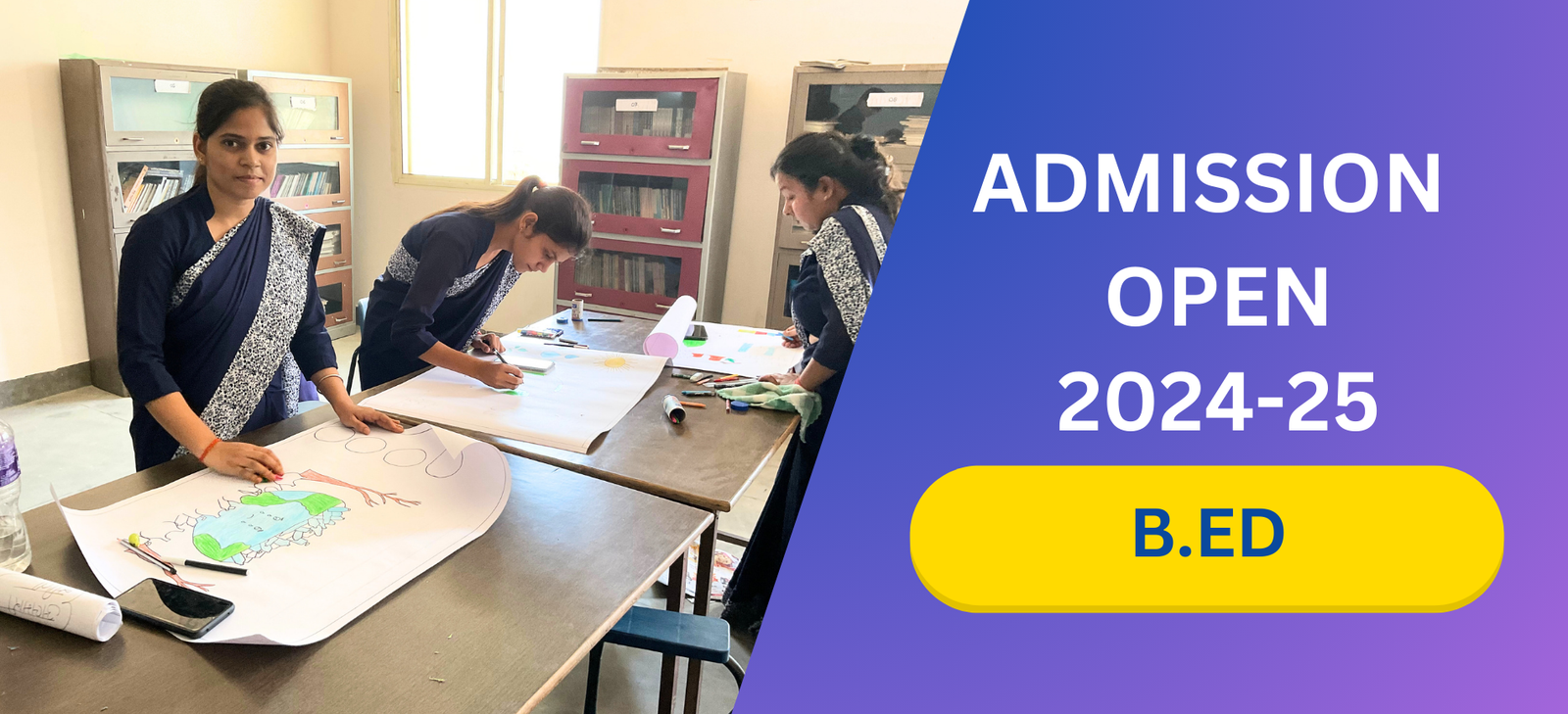
B.ed College in Sitapur
Overview
Welcome to the Bachelor of Education (B.Ed) program at Renu Mahesh Sewa Sanstha. Our B.Ed program is designed to develop skilled, knowledgeable, and compassionate educators who can make a significant impact in the field of education. Here’s a comprehensive overview of our program
Course Structure
Duration:
- Two Years: The B.Ed program is structured over two years, divided into four semesters.
Curriculum:
- Core Subjects: Educational Psychology, Teaching Methodologies, Curriculum Development, Classroom Management, and Educational Technology.
- Practical Training: Teaching practice sessions, classroom observations, and internships in schools.
- Workshops and Seminars: Regular workshops and seminars with education experts to stay updated on the latest teaching methods and educational trends.
Key Benefits
In-Depth Knowledge
- Comprehensive Curriculum: Gain a thorough understanding of educational theories, practices, and policies.
- Specialization Options: Choose specializations in subjects like Mathematics, Science, Social Studies, and Languages to align with your career goals.
Hands-On Experience
- Practical Training: Engage in extensive teaching practice and internships in real classroom settings to develop and refine your teaching skills.
- Interactive Learning: Participate in interactive and participative learning experiences that encourage critical thinking and problem-solving.
Professional Development
- Career Opportunities: Prepare for a rewarding career as a certified teacher, educational consultant, curriculum developer, or school administrator.
- Skill Enhancement: Develop essential skills such as communication, leadership, classroom management, and student assessment.
Year 1
Semester 1
Childhood and Growing Up
- Understanding child development and learning processes
- The role of family, school, and community in child development
Contemporary India and Education
- Educational policies and practices in India
- Social, cultural, and economic contexts of education
Learning and Teaching
- Theories of learning and teaching
- Strategies for effective teaching and student engagement
Language Across the Curriculum
- Importance of language in education
- Techniques for teaching language skills across subjects
Semester 2
Knowledge and Curriculum
- Foundations of curriculum design and development
- Philosophical and sociological perspectives on curriculum
Assessment for Learning
- Principles and methods of assessment and evaluation
- Designing assessments to improve student learning outcomes
Pedagogy of School Subject – Part 1
- Teaching methodologies for specific subjects
- Developing subject-specific lesson plans and activities
Practical: School Internship – Part 1
- Observing classroom dynamics and teaching practices
- Assisting in classroom activities and lesson delivery
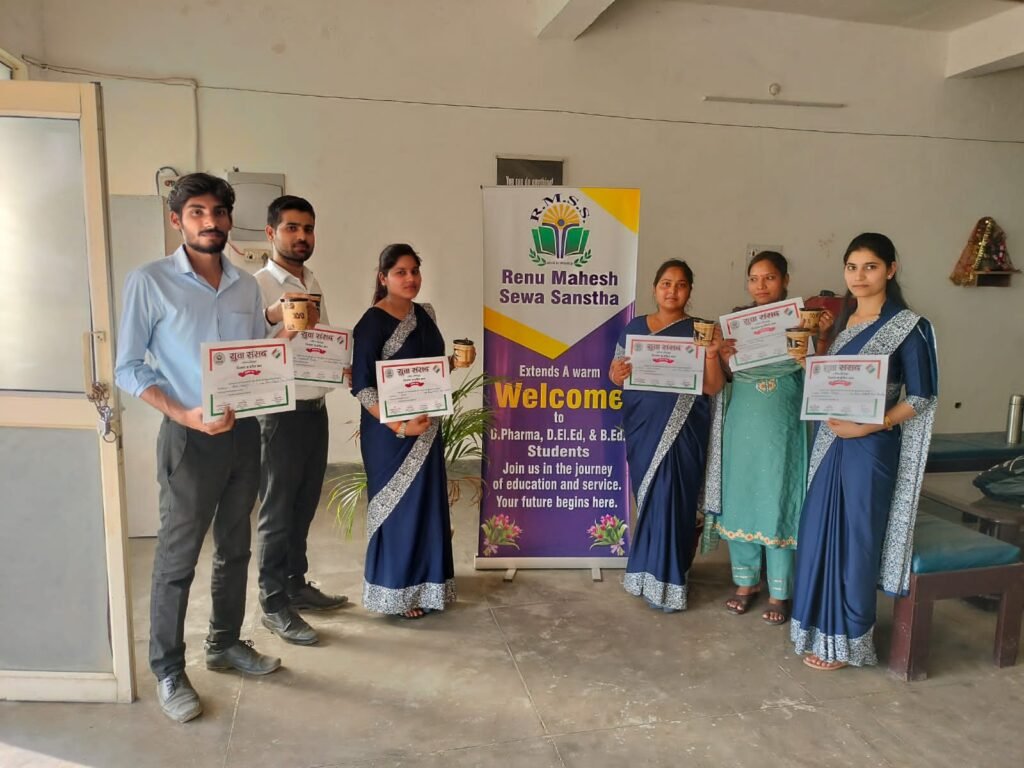
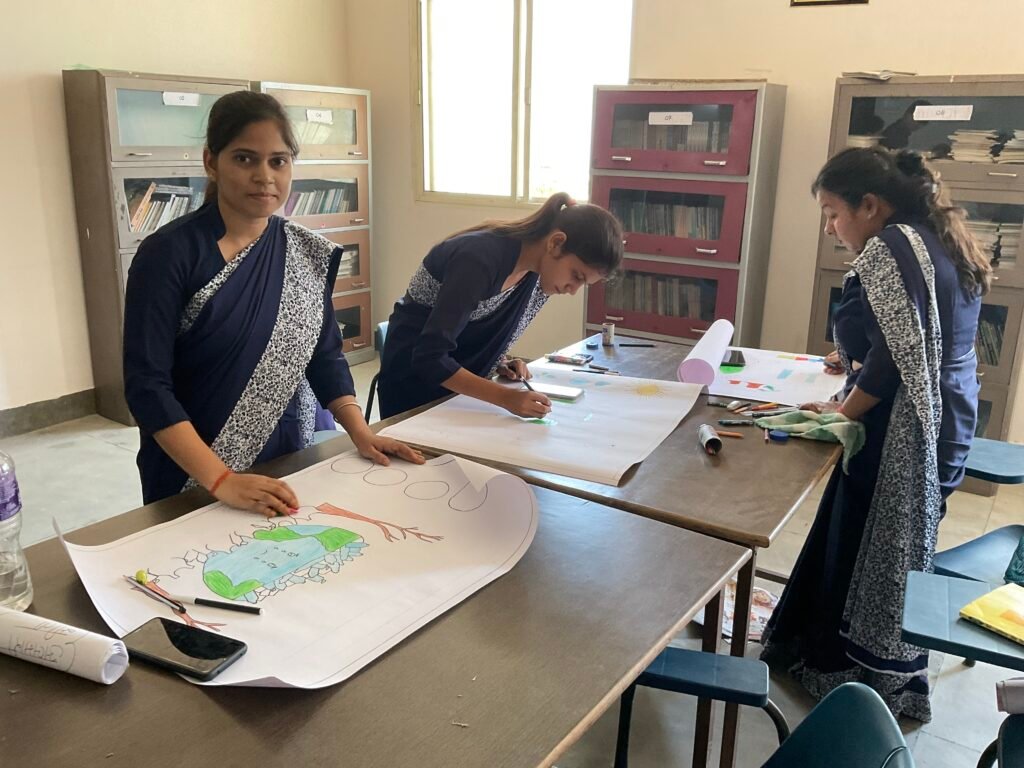
Year 2
Semester 3
Creating an Inclusive School
- Strategies for inclusive education
- Addressing diverse learning needs and promoting equity
Gender, School, and Society
- Understanding gender issues in education
- Promoting gender equality and sensitivity in schools
Pedagogy of School Subject – Part 2
- Advanced teaching methodologies for specific subjects
- Integrating technology and innovative practices in teaching
Health and Physical Education
- Importance of physical education and health in child development
- Designing and implementing physical education programs
Semester 4
Educational Management and Leadership
- Principles of educational management and leadership
- Managing educational institutions effectively
Guidance and Counselling
- Techniques for providing academic and personal guidance to students
- Role of a teacher as a counselor
Environmental Education
- Importance of environmental education in the curriculum
- Strategies for teaching environmental awareness
Practical: School Internship – Part 2
- Teaching full lessons and managing the classroom independently
- Implementing innovative teaching strategies and reflecting on practice
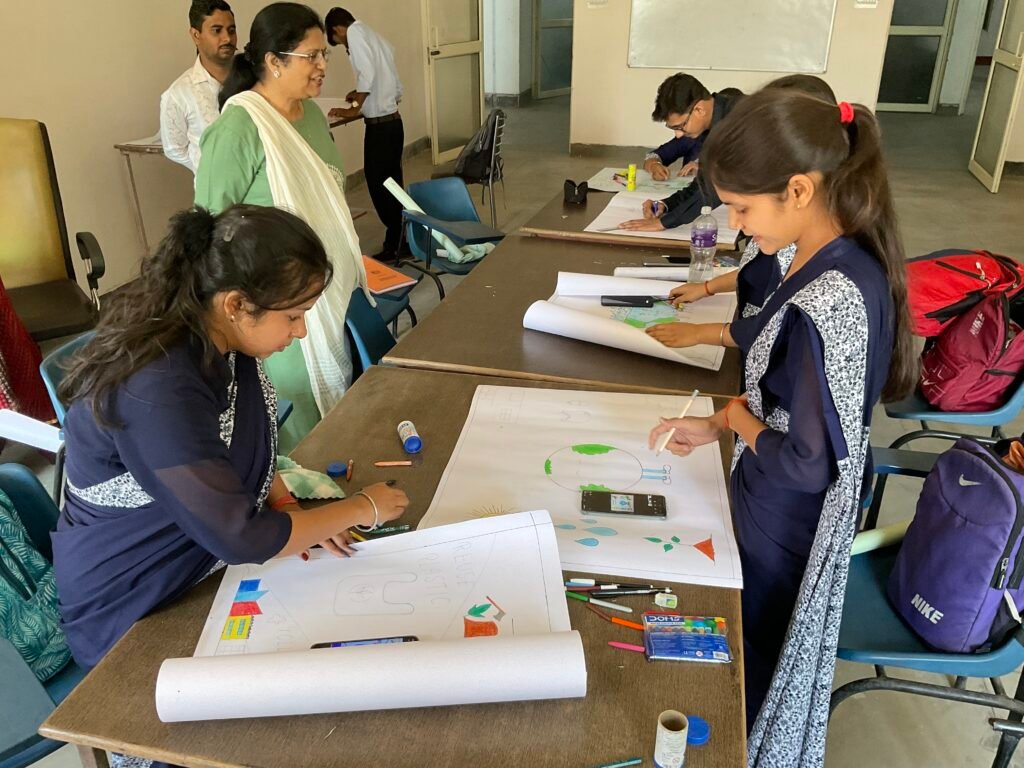
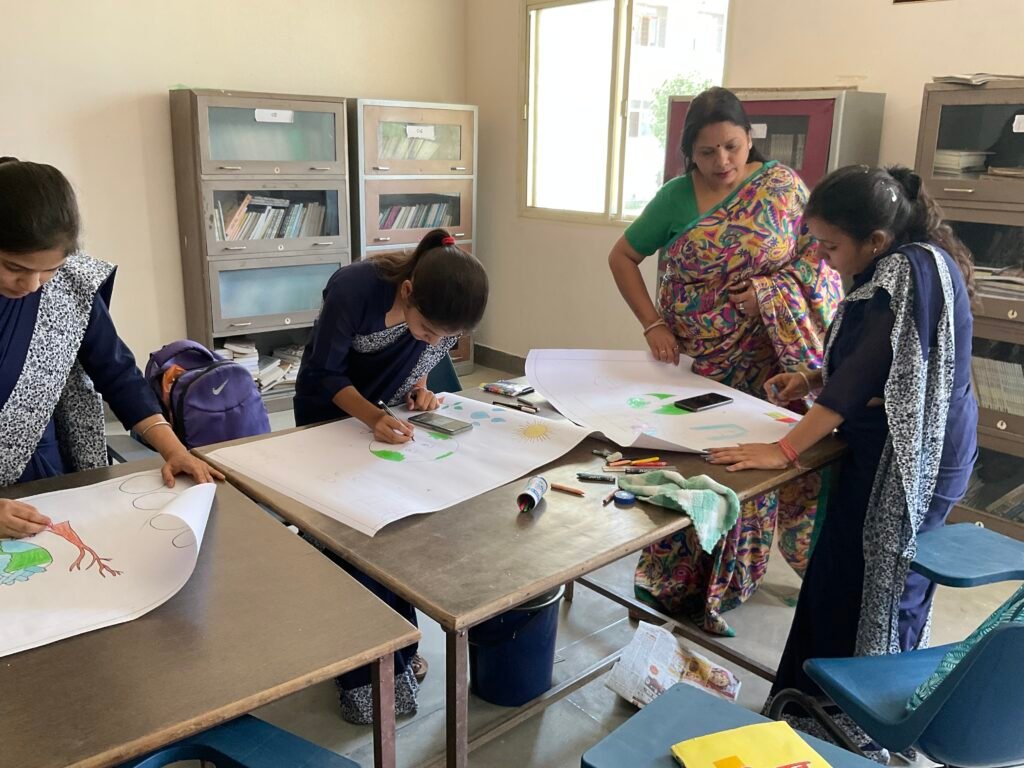
Additional Features
- Workshops and Seminars: Regular sessions with education experts on the latest teaching methods, classroom technology, and educational research.
- Field Visits: Opportunities to observe and participate in diverse educational settings outside the traditional classroom.
- Peer Learning: Collaborative projects and group activities to foster teamwork and communication skills.
Admission Requirements
- Educational Qualification: Candidates must have completed their undergraduate degree with a minimum qualifying percentage.
- Entrance Examination: Admission may require passing an entrance examination and an interview.
How to Apply
- Application Form: Fill out the application form available on our website or at our admissions office.
- Submission: Submit the completed form along with the required documents before the deadline.
- Selection Process: Shortlisted candidates will be called for an entrance test and interview.
